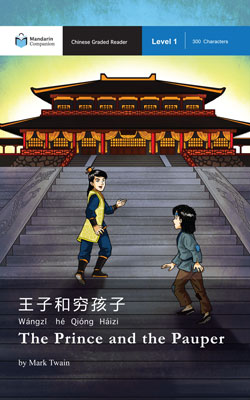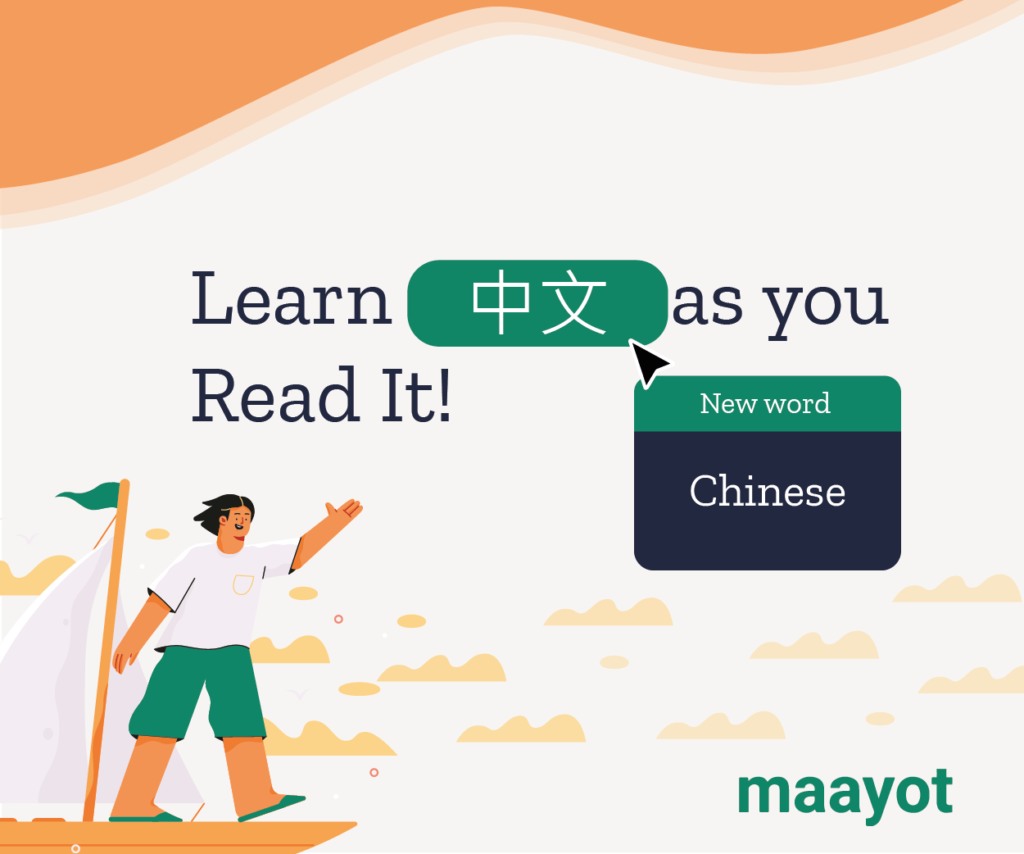Mark Twain meets the Middle Kingdom
If you enjoy the works of Mark Twain, you’ll enjoy Mandarin Companion’s adaptation of “The Prince and the Pauper” 《王子和穷孩子》.
This colorfully illustrated book is set in a fictional imperial capital of Xijing (西京), which when viewed on the map in the beginning of the book, looks conspicuously close to Xi’an (西安)the first capital of a united China.
How they decided on the title 《王子和穷孩子》
It is interesting how Mandarin Companion came up with the title 《王子和穷孩子》, literally “The Prince and the Poor Child”. The philosophy behind extensive reading is to provide high frequency words to help solidify comprehension.
The formal word for “beggar” in Chinese is 乞丐, but this word contains two low frequency characters. The informal term for “beggar” 要饭的, was deemed too informal for the book title, but is is part of the vocabulary. And a beginning student should certainly recognize all three of those characters.
Plot of 《王子和穷海》
“The Prince and the Pauper” 《王子和穷孩子》is a level 1 reader, so a student with a knowledge of 300 Chinese characters or about one year of Chinese should be able to read this book.
Mandarin Companion makes it a point when doing a story adaptation of not transliterating English names into Chinese, this gives the story a distinct Chinese flair and helps the reader take a familiar story and see in with Chinese eye. They do the same with the locale.
The plot really should be a big surprise to anyone, a prince 宋知远 (Soǹg Zhīyuǎn) has a chance meeting with a poor lad 李小朋 (Lǐ Xǐaopéng).
They are strikingly similar in appearance and so for fun they exchange places. Song Zhiyuan wants to escape the confine for the imperial palace and his royal responsibilities. Li Xiaopeng wants to escape too, but it is from the life of a beggar.
As the saying goes, the grass is always greener on the other side of the fence and Song Zhiyuan realizes that his isolation in the imperial palace imposed upon him. He sees people treated unfairly, including himself. This will change the way things are done once he returns to the throne.
As for Li Xiaopeng, since he’s a bit of a rube, imperial life is difficult for him and he misses his mother and two sisters, but not his father, who’s prone to drink.
How 《王子和穷孩子》 helped me
Even though I’m probably at this time in the 700-800 word range, I found reading《王子和穷孩子》very helpful. The book has about 100 key words listed in the index, and I did recognize most of them.
However some of the vocabulary related to royalty, were new [国王 – king, 王宫 – palace,王子 – prince,王岁- long live (the king!),大臣 — royal official/chancellor,etc.] were easy enough to read, but the new combinations for these familiar words led to an larger vocabulary. All done with little effort. That’s the beauty of graded readers.
Other features of “The Prince and the Pauper”
The key words are indexed in the text to the key word list at the back of the book. They are also repeated multiple times throughout the plot to fix them in your mind.
To see if you really picked up the gist of the story, each chapter has discussion questions found in the back, just after the key word list.
Mandarin Companion also knows which words are not covered by major text books such as “Integrated Chinese” and “New Practical Chinese Readers”, so in Appendix A these words are tabulated by character, with the pinyin for that character, then that character is combined with other characters to form words that are found in the text.
Appendix B contains a chapter by chapter break down of major grammar points. If you are weak on one of those grammar points, you can refer to a Chinese text book or Allset Learning’s Chinese Grammar Wiki.
In short
To master Chinese, you’ll definitely need to amass a big vocabulary. Reading graded readers such as《王子和穷孩子》will definitely take you down the road, laying a solid foundation. Get a copy!




